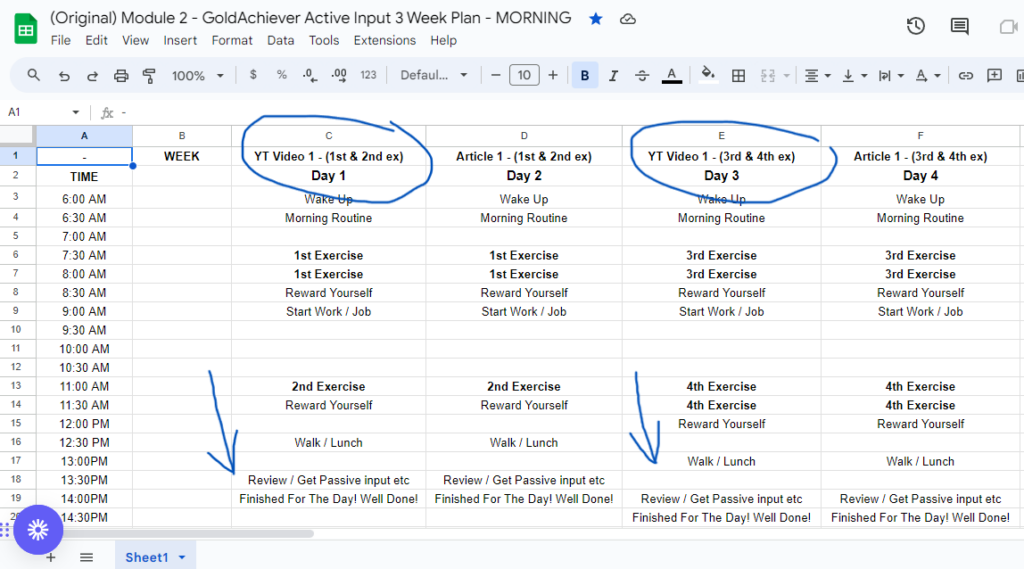
You’re in a conversation, completely engaged in the other person, but when you speak, you can’t quite remember the words. You know they’re somewhere in your head but seem to hide when you need them most. This is because you ‘memorized’ the words.
The best way to memorize words In English is to STOP memorizing them, especially on their own. Don’t rely on memory or trying to remember words as a technique. Continue getting the language into your brain, and over time, the words will naturally stay in your head.
We will show you the real way to ‘memorize’ words, so instead of the process of memorizing being a chore, can become a very rewarding experience that will speed up your progress by a mile!
What’s The Best Way To Memorize Words Then?
We have all been taught in schools and colleges that memorizing words or using flashcards is the answer to learning a language and is just something we must do. The reality is learning this way keeps you stuck; you are always thinking in your head; you are always trying to remember every new word you just ‘learned’ using every ounce of energy you have. This is not an effective way to learn, in fact, it’s harmful.

So, what do we do instead? We use Acquisition or The Natural Approach if we want to allow words to stick in our brains permanently.
Acquisition is an unconscious process of learning a language – this is how we learned our native language. Look for yourself. Do you actually remember (pun intended) memorizing words in your 1st language when you were a baby? Or did it just kinda happen? Let that sink in…

We learn a language when we understand the message. Comprehending messages and ideas is the only way to acquire a language. Using memorization as a technique is actually causing more harm than good because it takes everything out of context (more on this later!)
There is a natural order to learning (The Natural Order Hypothesis), so words will come naturally with enough input, well, comprehensible input…
Learn Words Through Comprehensible Input
Comprehensible Input or CI for short, is how we ‘acquire’ a language. Input is listening and reading because it’s coming into your brain (output is speaking and writing) and comprehensible means it’s understandable – you understand the message in context.
“We acquire language when we understand what we hear and read, when we understand what people are saying to us, not how they say it.” – Stephen Krashen (Linguist & Pioneer of The Natural Approach)

Allow yourself to be flooded with tons of CI through reading and listening; expose yourself to as many words as you can. Notice when you are reading and listening. This means be aware of the words, but don’t memorize them consciously – let them be acquired subconsciously and naturally. Follow the message, don’t rely on memory, and trust that your brain, with enough input (CI), will acquire or soak up all the new vocabulary. Know that words will increase naturally over time and they will start to stick.
2 Things You Need For Comprehensible Input

- Make sure it’s in context – This means finding the words in sentences with other words.
- Find rich and compelling material that you find interesting – there has to be meaning there.
Context really is key! Make sure you have material (Input) that’s in sentences but also where you can understand the main message – this is impossible if you are, say, memorizing lists of words! Don’t do that!
Finding interesting material is obvious… if you don’t enjoy what you are getting in (input) you will stop altogether, resulting in no input – and this is as bad as giving up because you NEED input (comprehensible Input) before you can speak and write.
Now you know you need CI, not memorization, to store words… How can you speed up this process in the most effective way?
The Magic Of Spaced Repetition – Review Words, Don’t Memorize
As you are getting in lots of comprehensible input (CI) through listening and reading, instead of ‘memorizing’, start reviewing all of the new words you are acquiring (and keep exposing yourself to older ones too!). The way to do this is through spaced repetition.

As you are getting consistent repetition through CI alone, spaced repetition allows you to really speed up the way you retain (remember) those words. How do you do this?
Simply, create space in between when you last saw the word (in context of course) and the next time you see the word – this is spaced repetition in a nutshell.
Make sure to get repeated exposure to the words in context. Start allowing yourself to almost forget the words and then just as you are forgetting (with some time between reviewing) you expose yourself to the words again – this makes it stronger when you review again and ultimately allows the words to stick.
The more you see the words in their natural habitat, with other words in context, and by seeing the words over and over again, your brain will naturally memorize subconsciously, without you having to think or without having to use flashcards or vocab lists.
I tell my students within my InterFluent Program to forget the words for 3 days, then come back and expose themselves again. I put a routine in place to make sure they are utilizing the 3 day-spaced repetition for optimal progress.

Start Using The Words In Your Everyday Life
You can start getting used to these words by practicing them with speaking (output).
- Start voice recording on your phone using a software called DeepL. You can create little conversations with yourself. If you’d like to know more, you can check out my InterFluent course which breaks down exactly what to do.
- Start summarizing aloud your favorite podcast, article, etc. Try to use the new words naturally whilst you are summarizing the material.
Conclusion – Stop Memorizing, Start Acquiring!
Memorizing a load of words ESPECIALLY out of context will do more harm than good! You will constantly be thinking and editing in your head and unable to remember the words needed in that moment. Exposing yourself to rich, compelling content in context with enough repetition is the key to storing words in your brain naturally and for the rest of your life. If you would like to learn more about Comprehensible Input, check out my InterFluent course here.

